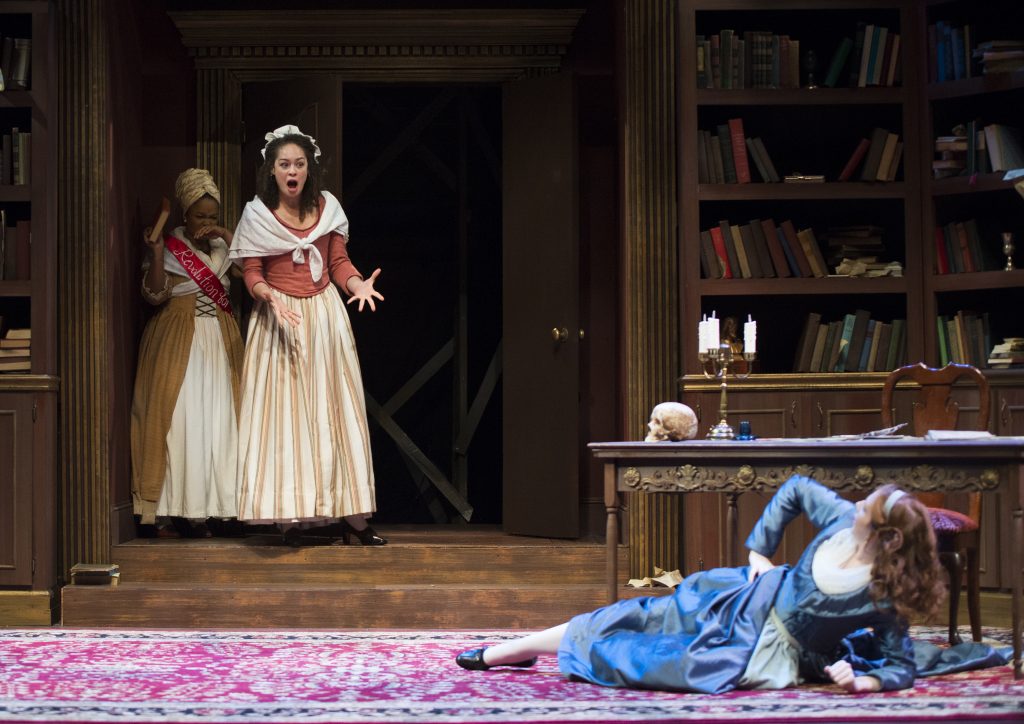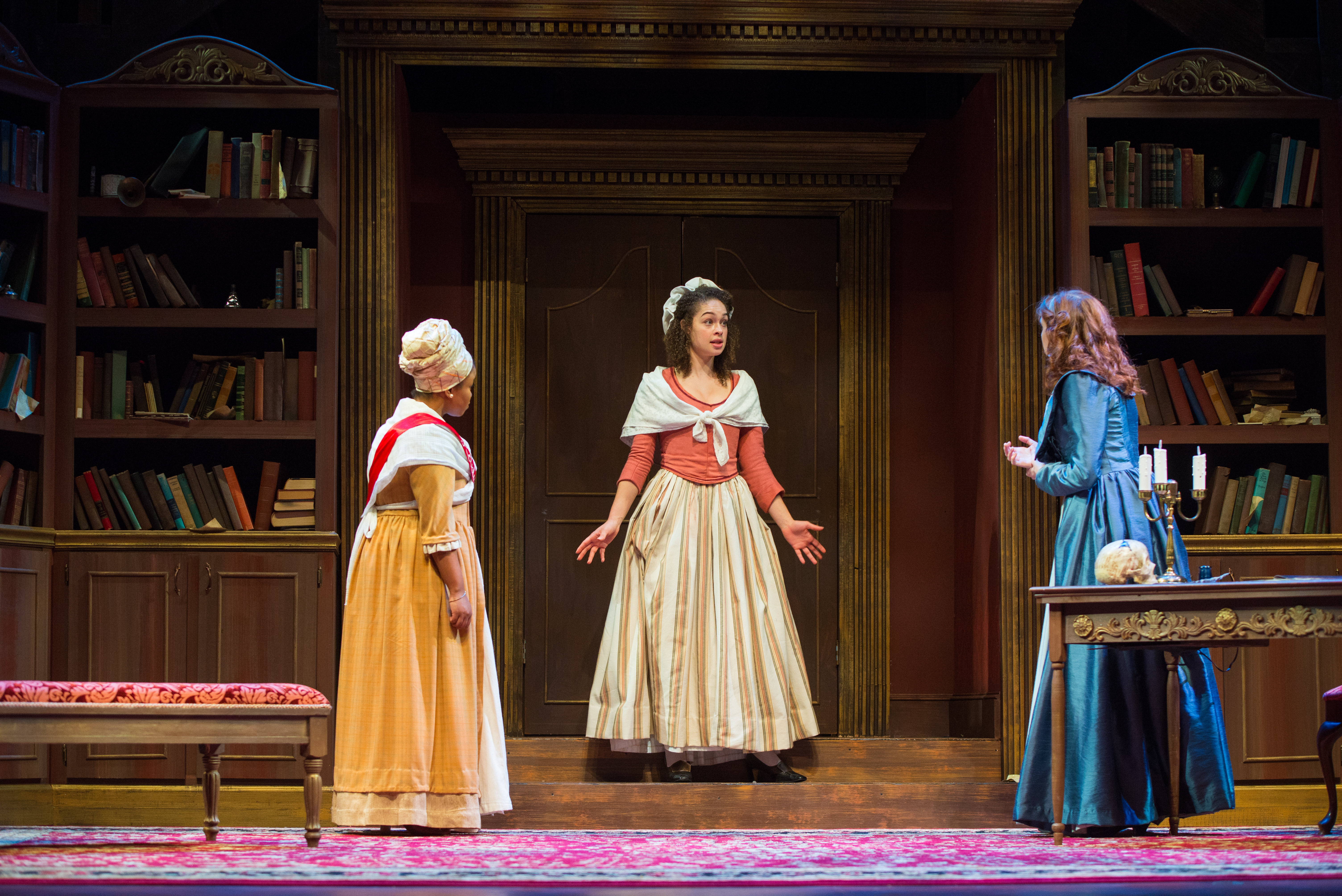
Binghamton University’s theatre department begins its 2018-19 Mainstage season with “The Revolutionists,” a historical comedy written by Lauren Gunderson and directed by Tom Kremer, a professor of theatre.
The story is based on four female historical figures during the time period of the French Revolution in Paris: playwright Olympe de Gouges, assassin Charlotte Corday, Queen Marie Antoinette and Haitian rebel Marianne Angelle.
Though the plot is set during France’s Reign of Terror, Kremer said the audience does not need to have background knowledge of it to enjoy the show.
“It’s as if Gunderson took women from today and threw them into the French Revolution,” Kremer said. “Intellect is required, but knowledge of the revolution is not.”
The play highlights topics such as inequalities between classes, minorities and feminism — all issues that still exist in today’s society.
“People have been fighting for the same things for over 200 years and it’s still relevant today,” said Amelia Pena, a sophomore double-majoring in theatre and business administration who plays Marie Antoinette.
While “The Revolutionists” is described as a “slightly accurate” historical comedy, it doesn’t stray away from the message of social injustice.
“I think one of the lines in the show actually sums it up perfectly, where both Olympe and then later Marianne repeats, ‘It might be fiction, but it’s not fake.’ This was a very real time, where there was a lot of terror and these were very real women who had to go through these struggles where it was already a difficult time for everybody living, whether you were the aristocracy or you were a peasant,” said Brianna Simpkins, a junior majoring in political science who plays Marianne Angelle. “It was a very daunting time and I think it’s in the darkest times that you try to find light, that you try to find humor — and making that humor not be distasteful but also true to who these characters were as people.”

“Even though we’re playing characters, we’re very much playing ourselves,” said Simpkins. “We bring so much of ourselves to this role that it brings this authenticity that I haven’t seen in a lot of other works.”
The cast also keeps in mind the historical significance of their characters when they are acting.
“It’s knowing that Olympe was a real person and working with that and knowing how important her legacy was as a feminist — she wrote the Declaration of the Rights of Woman and of the Female Citizen, which she presented at the National Assembly during the French Revolution, [and] was just extremely courageous and amazing at that time. She also wrote a multitude of abolitionist plays dedicated to the queen that ultimately got her killed,” said Margaret Leisenheimer, a senior majoring in theatre who plays Olympe de Gouges. “So when I was lucky enough to have been cast in this role, it was the initial shock of, ‘Oh my goodness, how am I going to bring her to life and do her memory justice?’”
The cast members noted that one of the most impressionable aspects of the production is connecting the feminine experience between past and present.
“Part of it makes you want to give up, but you’re seeing these women fighting when the conditions were a lot worse for them than they are for us now; we should probably step up to the plate,” said Liz Sierra, a senior majoring in theatre who plays Charlotte Corday.
The team hopes that the audience leaves gaining awareness and questioning the world around them.
“If one person can walk out of there with an ‘aha! moment,’ like, ‘I get it now,’ then we’ve done our job,” Sierra said.
“The Revolutionists” debuts on Oct. 5 at 8 p.m. at Chamber Hall in the Anderson Center and continues on Oct. 6, 19 and 20 at 8 p.m. and Oct. 21 at 2 p.m. Tickets are available online at anderson.binghamton.edu, or by phone at 607-777-ARTS. The cost is $18 for general admission, $16 for alumni, faculty, seniors or staff and $10 for students.


